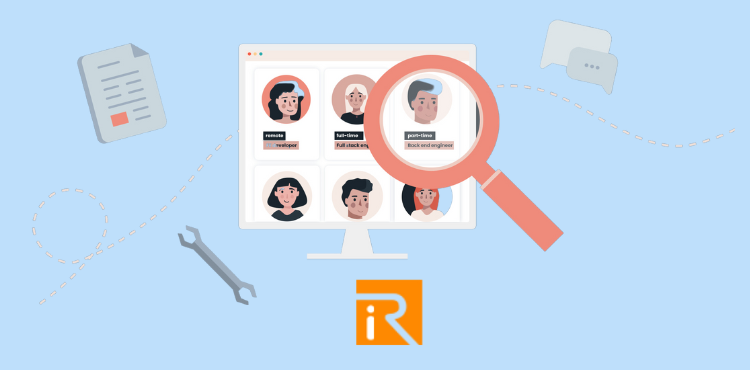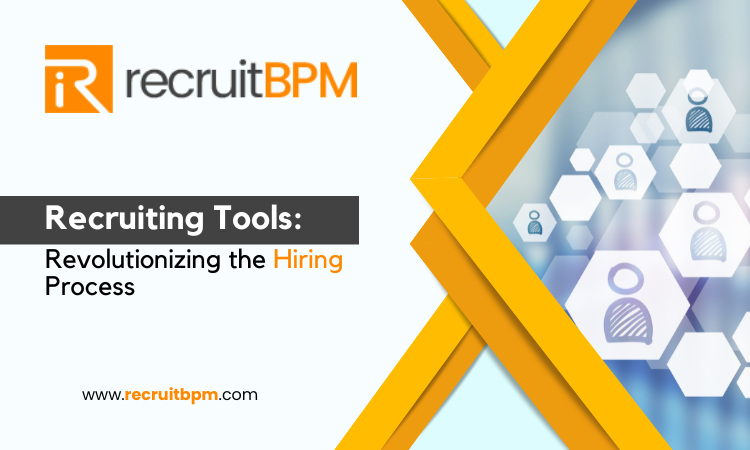Recruiting tools have become indispensable in the realm of HR, transforming how businesses hire top talent. In today’s competitive job market, companies need efficient and effective solutions to streamline their recruitment processes. Let’s delve into the world of It and explore their significance, types, benefits, and challenges.
1. Introduction to Recruiting Tools
Recruiting tools encompass a wide array of staffing software and platforms designed to simplify the hiring process. These tools leverage technology to automate tasks, enhance candidate experience, and enable data-driven decision-making.
2. Importance of Recruiting Tools in HR Processes
In the digital age, speed and accuracy are paramount in hiring. It empower HR professionals to swiftly identify suitable candidates, reducing time-to-fill roles and ensuring organizations don’t miss out on exceptional talent.
3. Types of Recruiting Tools
Applicant Tracking Systems (ATS)
ATS software organizes applicant data, making it accessible to recruiters. It automates resume parsing, application tracking, and candidate communication.
Candidate Sourcing Tools
These tools help recruiters find potential candidates online, utilizing various platforms and databases. They enhance proactive recruitment strategies.
Video Interviewing Platforms
Video interviews save time and resources by allowing initial candidate assessments remotely. They offer a glimpse into candidates’ personalities and communication skills.
Skill Assessment Software
These tools evaluate candidates’ skills through tests and simulations. They ensure candidates possess the necessary competencies for specific roles.

4. Benefits of Using Recruiting Tools
- Efficiency: Automating repetitive tasks accelerates the recruitment process.
- Quality Hires: Advanced tools match candidates with job requirements, ensuring better fits.
- Data-Driven Decisions: Tools provide valuable insights for strategic recruitment planning.
- Improved Candidate Experience: Quick responses and streamlined processes enhance candidates’ perceptions of the company.
5. Challenges in Implementing Recruiting Tools
While It offer numerous advantages, challenges such as data security, integration issues, and user adoption must be addressed for successful implementation.
6. How Recruiting Tools Improve Efficiency
It automate resume screening, application management, and interview scheduling. AI algorithms analyze candidate data, enabling recruiters to focus on engaging with potential hires.
7. Top Recruiting Tools in the Market
Workday Recruiting
Workday offers a comprehensive suite for talent acquisition, integrating seamlessly with other HR functions.
Greenhouse
Greenhouse provides customizable solutions, aiding in optimized recruitment workflows and candidate evaluations.
Lever
Lever offers collaborative hiring features, enhancing team communication and candidate assessments.
JazzHR
JazzHR is user-friendly and scalable, catering to businesses of all sizes with its applicant tracking and sourcing capabilities.
8. Key Features to Look for in Recruiting Tools
- User Interface: Intuitive interfaces ensure easy navigation.
- Integration Capabilities: Tools should integrate with existing HR software.
- Customization: Tailor tools to align with specific hiring processes.
- Support and Training: Adequate support and training resources are essential for user proficiency.
9. Future Trends in Recruiting Tools Technology
- AI-Powered Matching: Advanced algorithms will enhance candidate-job matching.
- Predictive Analytics: Tools will predict candidate success based on historical data.
- Virtual Reality: VR simulations will be used for immersive candidate assessments.
10. Case Studies: Successful Implementations of Recruiting Tools
Explore real-world examples of companies that have significantly improved their hiring outcomes through strategic use of It.
11. Tips for Choosing the Right Recruiting Tools for Your Business
Consider factors like scalability, budget, and user experience when selecting It tailored to your organization’s unique needs.
12. Cost Considerations and ROI of Recruiting Tools
Evaluate the total cost of ownership, factoring in initial investment, training, and ongoing support. Assess the return on investment in terms of time saved, improved hires, and enhanced productivity.
13. Ethical Considerations in Using AI-Based Recruiting Tools
Maintaining fairness and avoiding bias is crucial when implementing AI-powered tools. Ethical guidelines and regular audits ensure equitable hiring practices.
Conclusion
Recruiting tools have revolutionized the hiring landscape, offering unprecedented efficiency and accuracy. As businesses embrace these technological advancements, they must navigate challenges and uphold ethical standards. By doing so, they can attract top talent and build high-performing teams, driving organizational success.
FAQs About Recruiting Tools
-
Q: What are the must-have features in an ATS?
A: An ATS should have resume parsing, candidate tracking, and collaborative features for effective hiring. -
Q: How do recruiting tools use AI for candidate matching?
A: AI analyzes candidate profiles and job requirements, ensuring precise candidate-job fits. -
Q: Can recruit tools help in diversity hiring?
A: Yes, by eliminating biases and promoting objective candidate assessments, It contribute to diversity hiring efforts. -
Q: What is the role of predictive analytics in recruiting tools?
A: Predictive analytics forecast candidate success based on historical data, aiding in strategic hiring decisions. -
Q: How can businesses ensure ethical use of AI in recruit tools?
A: Regular audits, diverse data sets, and unbiased algorithms are essential to ensure ethical AI utilization in recruiting processes.

















